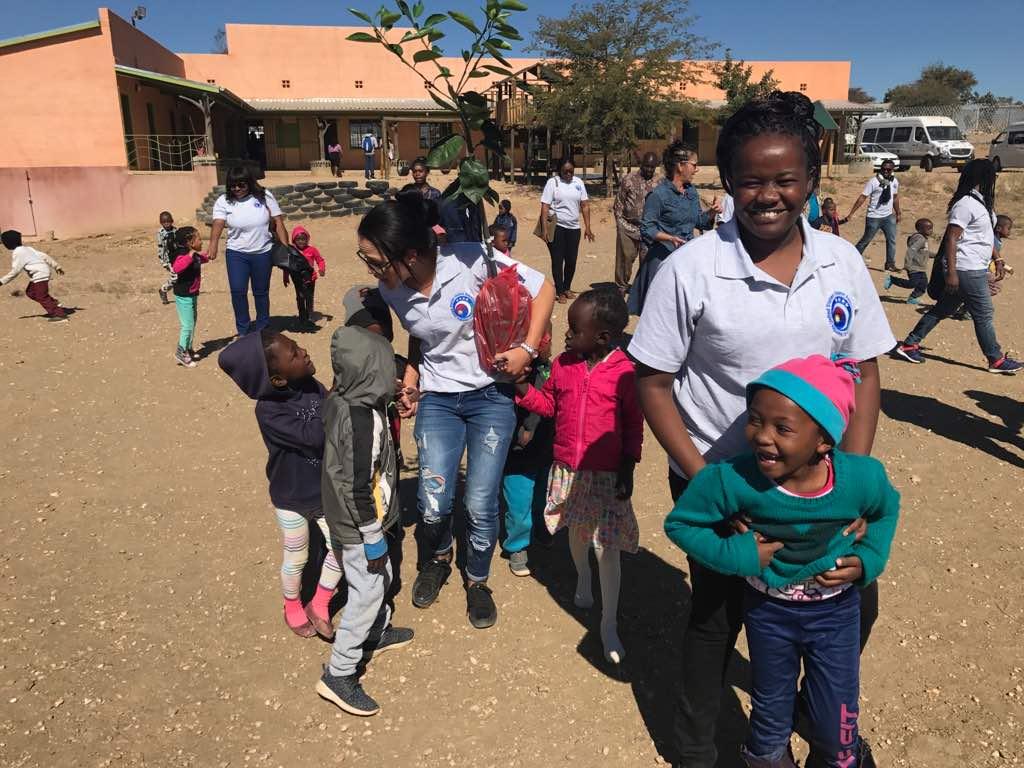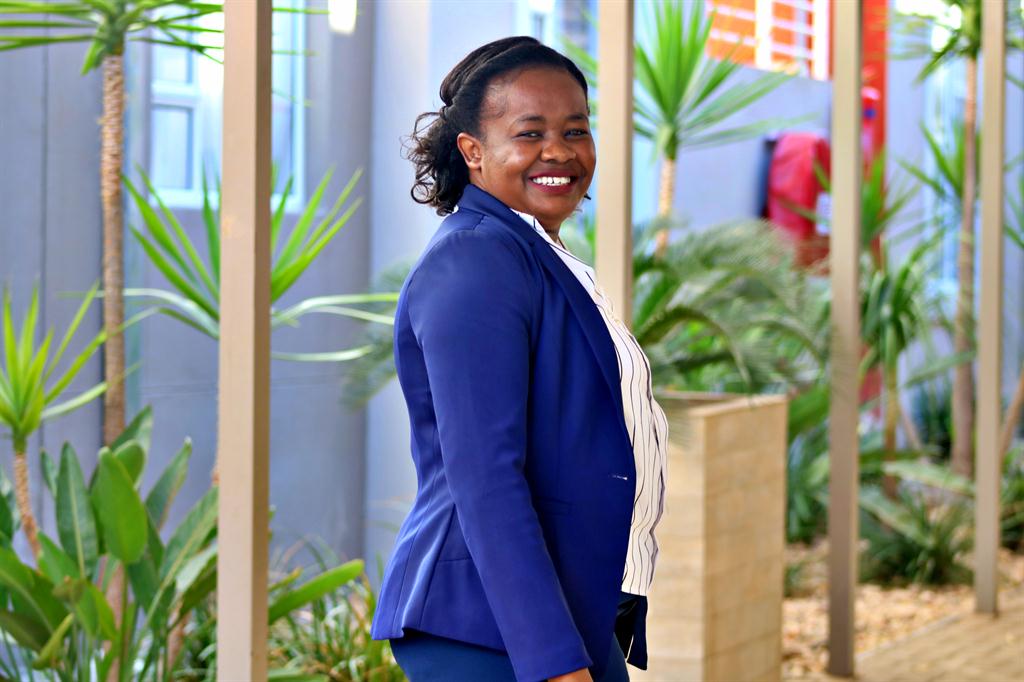Service with a smile
Emilia Nambahu was recently appointed as SOS Children’s Villages Namibia board chairperson.
JUSTICIA SHIPENA
Dynamic Emilia Nambahu has taken a strong leadership role in providing quality care for children who no longer live with their parents.
The 30-year-old has expertise in programme management, coordination, planning, and implementation.
Nambahu has over 10 years of experience in the education, healthcare and development arena, primarily sexual and reproductive health services for young people.
She is currently employed as an organisational development, performance management and training officer at the Business and Intellectual Property Authority (BIPA).
Her career path has taken twists and turns but has always incorporated the human element. Nambahu is an alumnus of the Mandela Washington Fellowship, both at the regional and continental level.
Additionally, she was part of the Mandela Institute of Development Studies (MINDS) as well as was a country lead researcher for the Mo Ibrahim Foundation for African Integrity Indicators.
“My goal is to strengthen international frameworks such as that of the sustainable development goals. I am passionate about children and youth development, hence I completed my master’s in development studies with the University of Free State in South Africa,” she says.
She earned an honours degree in public development and management from the University of Stellenbosch, a bachelor’s degree in human resources from the University of Science and Technology (Nust) and a certificate in community work-based children and youth from the Namibian College of Open Learning (Namcol) in collaboration with the University of KwaZulu-Natal.
SOS Children’s Villages Namibia has 36 years of experience in the country, providing alternative care to children and young people and strengthening families and communities to enable them provide quality care and protection for children at risk of losing parental care.
“I understand the joy and challenges of working with communities and my aspirations are to see every child and young person in Namibia excelling in their academic and personal development directly proportional to the social well-being,” she says.
As chairperson Nambahu says she will strive to make every young person as an ambassador of their community, well groomed and able to pass on the same impact.
“Given the role as board chairperson, I strive to create an enabling environment for most disadvantaged children and young generation to take ownership and be independent, productive citizens,” she says.
One of her top priorities is to strengthen family integration and strive for financial sustainability.
During her time with the Nelson Mandela Fellowship, she embraced the motto, “We should plant the seed even though we are not going to sit under their shade nor eat their fruits.” Nambahu feels that this is what she has done during her tenure at Star for Life, Positive Vibes, Phillipi Trust Namibia, Oshana Heroes Disability Club, Special Olympics, and the Ohangwena Youth Health Taskforce. She intends to instil the same values at the Young Women Empowerment Network (YWEN) and at SOS Children’s Villages Namibia.
“The programme has moulded me with skills and ability to network and see every person or institution as a prospect to add value to our course,” she says.
On the topic of violence against women and children, Nambahu says it is imperative that both genders of young people are involved in crafting solutions to curb violence.
She adds that many young people are either affected by or experiencing gender-based violence without knowing it.
“There is a need for us young people to get involved, continue reinforcing and take ownership by mobilising, advocating towards the safety of women and children in communities. Also make protective and supportive services available close to the people and response to calls for help,” she says.
Nambahu designed an educational programme to help prevent teenage pregnancy and alcohol abuse. This programme provided comprehensive sexuality education to young people.
“Given that I have worked for NGOs with limited budget resources for programmes, one of the challenges I faced is lack of financial resources,” she says.
Another challenge faced with this programme was the negative response from parents and the community.
“They believed that the content of the programme is taboo in the context of cultural norms and beliefs. However, being able to understand from the community perspective, I shared my experiences of my youthful days.”
Nambahu said young people can engage in dialogue and campaigns, inform policies and laws, and take action.
Facts about Nambahu
· She loves reading but is very selective when it comes to it.
· She is interested in developing a close relationship with children and young people.
· She is optimistic.
· She is an extrovert.
Dynamic Emilia Nambahu has taken a strong leadership role in providing quality care for children who no longer live with their parents.
The 30-year-old has expertise in programme management, coordination, planning, and implementation.
Nambahu has over 10 years of experience in the education, healthcare and development arena, primarily sexual and reproductive health services for young people.
She is currently employed as an organisational development, performance management and training officer at the Business and Intellectual Property Authority (BIPA).
Her career path has taken twists and turns but has always incorporated the human element. Nambahu is an alumnus of the Mandela Washington Fellowship, both at the regional and continental level.
Additionally, she was part of the Mandela Institute of Development Studies (MINDS) as well as was a country lead researcher for the Mo Ibrahim Foundation for African Integrity Indicators.
“My goal is to strengthen international frameworks such as that of the sustainable development goals. I am passionate about children and youth development, hence I completed my master’s in development studies with the University of Free State in South Africa,” she says.
She earned an honours degree in public development and management from the University of Stellenbosch, a bachelor’s degree in human resources from the University of Science and Technology (Nust) and a certificate in community work-based children and youth from the Namibian College of Open Learning (Namcol) in collaboration with the University of KwaZulu-Natal.
SOS Children’s Villages Namibia has 36 years of experience in the country, providing alternative care to children and young people and strengthening families and communities to enable them provide quality care and protection for children at risk of losing parental care.
“I understand the joy and challenges of working with communities and my aspirations are to see every child and young person in Namibia excelling in their academic and personal development directly proportional to the social well-being,” she says.
As chairperson Nambahu says she will strive to make every young person as an ambassador of their community, well groomed and able to pass on the same impact.
“Given the role as board chairperson, I strive to create an enabling environment for most disadvantaged children and young generation to take ownership and be independent, productive citizens,” she says.
One of her top priorities is to strengthen family integration and strive for financial sustainability.
During her time with the Nelson Mandela Fellowship, she embraced the motto, “We should plant the seed even though we are not going to sit under their shade nor eat their fruits.” Nambahu feels that this is what she has done during her tenure at Star for Life, Positive Vibes, Phillipi Trust Namibia, Oshana Heroes Disability Club, Special Olympics, and the Ohangwena Youth Health Taskforce. She intends to instil the same values at the Young Women Empowerment Network (YWEN) and at SOS Children’s Villages Namibia.
“The programme has moulded me with skills and ability to network and see every person or institution as a prospect to add value to our course,” she says.
On the topic of violence against women and children, Nambahu says it is imperative that both genders of young people are involved in crafting solutions to curb violence.
She adds that many young people are either affected by or experiencing gender-based violence without knowing it.
“There is a need for us young people to get involved, continue reinforcing and take ownership by mobilising, advocating towards the safety of women and children in communities. Also make protective and supportive services available close to the people and response to calls for help,” she says.
Nambahu designed an educational programme to help prevent teenage pregnancy and alcohol abuse. This programme provided comprehensive sexuality education to young people.
“Given that I have worked for NGOs with limited budget resources for programmes, one of the challenges I faced is lack of financial resources,” she says.
Another challenge faced with this programme was the negative response from parents and the community.
“They believed that the content of the programme is taboo in the context of cultural norms and beliefs. However, being able to understand from the community perspective, I shared my experiences of my youthful days.”
Nambahu said young people can engage in dialogue and campaigns, inform policies and laws, and take action.
Facts about Nambahu
· She loves reading but is very selective when it comes to it.
· She is interested in developing a close relationship with children and young people.
· She is optimistic.
· She is an extrovert.





Kommentaar
Republikein
Geen kommentaar is op hierdie artikel gelaat nie